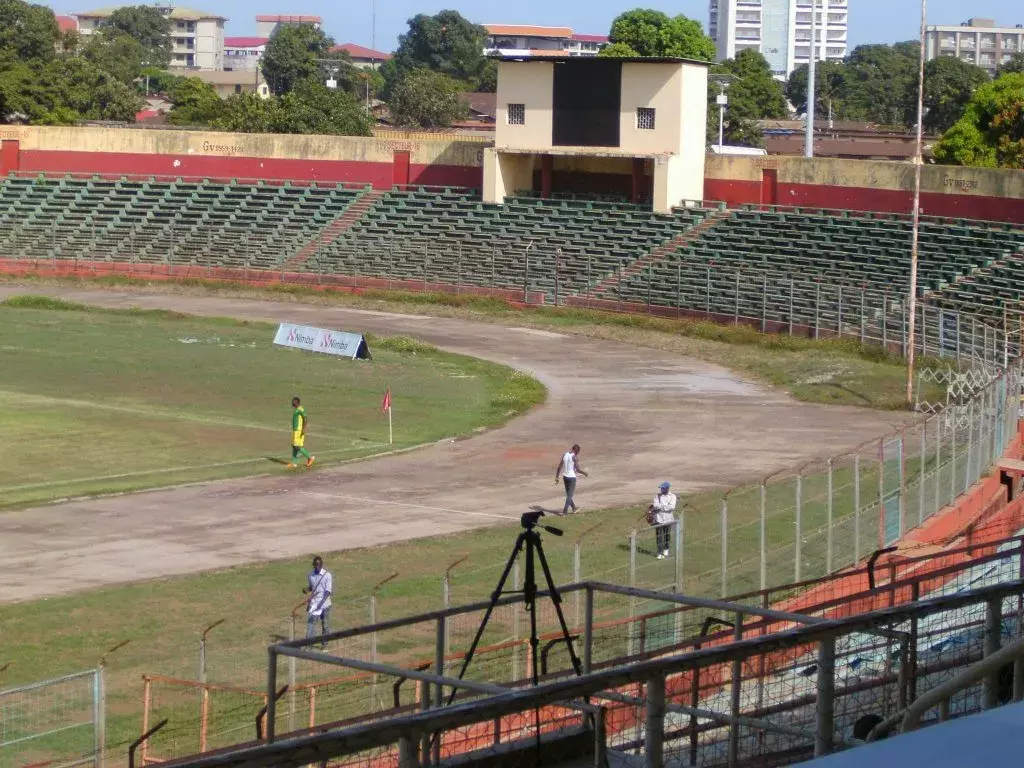Stade du 28 Septembre

- Stade du 28 Septembre is the largest and most historically significant stadium in Conakry, Guinea. Located in the heart of the capital, this multi-purpose venue serves as the primary location for football matches, national events, and cultural gatherings. Named after September 28, 1958, the date when Guinea voted for independence from French colonial rule, the stadium holds deep national significance. With a seating capacity of approximately 25,000 spectators, it is the home ground of the Guinea national football team (Syli National) and hosts numerous domestic and international football competitions.
- The stadium has been a witness to many historic football moments in Guinea’s sports history. It has hosted important African Cup of Nations qualifiers, FIFA World Cup qualifiers, and national league matches featuring clubs from the Guinean Premier League. Football fans from across the country gather here to support their teams, creating a vibrant and electrifying atmosphere. The passion for football in Guinea is immense, and Stade du 28 Septembre is the heart of this enthusiasm, regularly filled with loud cheers, traditional drumming, and colorful fan celebrations.
- Beyond football, Stade du 28 Septembre has also served as a venue for concerts, political rallies, and public gatherings. The stadium has been used for major national celebrations, independence anniversaries, and speeches by political leaders. However, it has also been a site of political turbulence, including some tragic events in Guinea’s history, such as the 2009 stadium massacre, where security forces cracked down on opposition protests. This tragic incident remains a painful memory in the country's recent history, highlighting the stadium’s role not only in sports but also in Guinea’s socio-political landscape.
- In recent years, there have been discussions about renovating and modernizing the stadium to meet international standards, given its aging infrastructure. Plans have been proposed to upgrade seating, improve safety measures, and enhance the overall spectator experience. Despite its challenges, Stade du 28 Septembre remains a central landmark in Guinea’s sporting and cultural identity, symbolizing both the country’s love for football and its historical struggles. Whether as a sports venue or a gathering place for national events, it continues to play a crucial role in the country’s public life.
